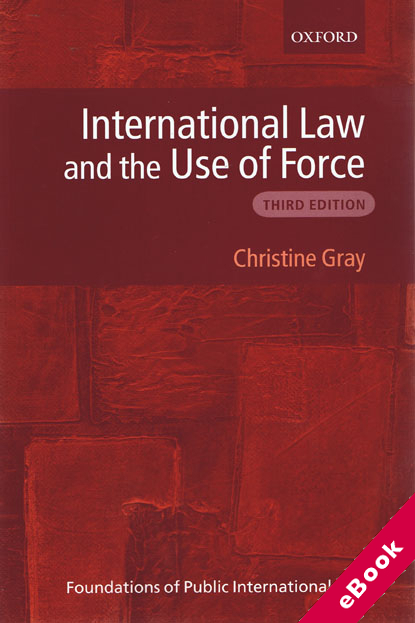
The device(s) you use to access the eBook content must be authorized with an Adobe ID before you download the product otherwise it will fail to register correctly.
For further information see https://www.wildy.com/ebook-formats
Once the order is confirmed an automated e-mail will be sent to you to allow you to download the eBook.
All eBooks are supplied firm sale and cannot be returned. If you believe there is a fault with your eBook then contact us on ebooks@wildy.com and we will help in resolving the issue. This does not affect your statutory rights.
Since the publication of the second edition of International Law and the Use of Force the law in this area has continued to undergo a fundamental reappraisal. Operation Enduring Freedom carries on against Al Qaida and the Taliban in Afghanistan six years after the terrorist attacks of 11 September 2001. Can this still be justified as self-defence in the 'war on terror'? Is there now a wide right of pre-emptive self-defence against armed attacks by non-state actors?
The 2006 Israel/Lebanon conflict and the recent intervention of Ethiopia in Somalia raise questions about whether the 'war on terror' has brought major changes in the law on self-defence and on regime change. The 2003 invasion of Iraq gave rise to serious divisions between states as to the legality of this use of force and to talk of a crisis of collective security for the UN. In response the UN initiated major reports on the future of the Charter system; these rejected amendment of the Charter provisions on the use of force.
They also rejected any right of pre-emptive self-defence. They advocated a 'responsibility to protect' in cases of genocide or massive violations of human rights; the events in Darfur show the practical difficulties with the implementation of such a duty.